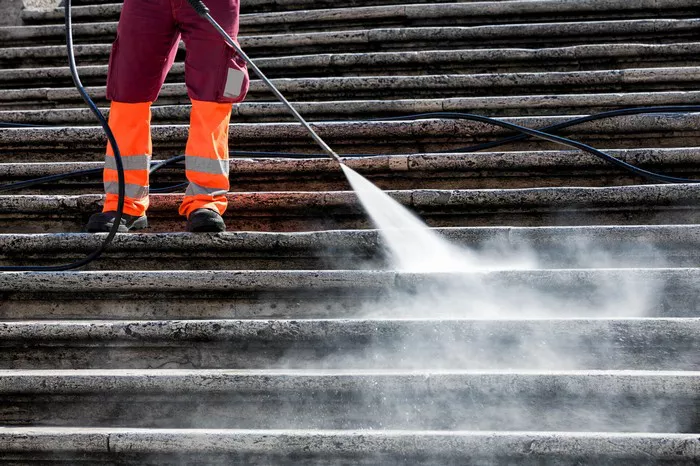When it comes to cleaning tasks around the house, an electric pressure washer can be a valuable tool. One of the key factors to consider when selecting a pressure washer is the PSI, or pounds per square inch. PSI indicates the pressure and force with which water is sprayed from the washer, influencing its cleaning power. Understanding what PSI is appropriate for your needs can ensure you achieve effective and efficient cleaning results without damaging surfaces. In this article, we will delve into the significance of PSI, explore the highest PSI available for electric pressure washers, and provide practical guidance on choosing the right PSI for various cleaning tasks.
What is PSI?
PSI stands for pounds per square inch, which measures the pressure at which water is expelled from the pressure washer’s nozzle. It determines the force with which water impacts surfaces, affecting how effectively dirt, grime, and other debris are removed. Higher PSI generally means more powerful cleaning, capable of tackling tougher stains and larger areas. However, it’s crucial to balance PSI with other factors such as GPM (gallons per minute) and nozzle types to ensure efficient and safe cleaning.
Understanding Electric Pressure Washers
Electric pressure washers are popular choices for homeowners due to their ease of use, quieter operation, and environmental friendliness compared to gas-powered models. They are suitable for a range of cleaning tasks around the home, including washing cars, cleaning decks, patios, driveways, and siding. Electric models are typically more compact and lighter than their gas counterparts, making them easier to maneuver and store.
Highest PSI for Electric Pressure Washers
The PSI range for electric pressure washers generally varies from around 1,500 PSI to 2,300 PSI, with some commercial-grade models reaching higher. The highest PSI available for electric pressure washers is typically around 2,300 PSI. This level of pressure is sufficient for most residential cleaning tasks, including removing mildew, dirt, and grime from surfaces without causing damage.
Benefits of Higher PSI
Higher PSI can provide several benefits when using an electric pressure washer:
Effective Cleaning Power: Higher PSI means more forceful water jets, which can effectively blast away stubborn dirt and grime.
Faster Cleaning: Increased pressure allows for quicker cleaning of larger areas, reducing overall cleaning time.
Versatility: With higher PSI, electric pressure washers can handle a wider range of cleaning tasks, from light to medium-duty jobs.
Considerations When Using High PSI
While higher PSI can be advantageous, there are important considerations to keep in mind:
Surface Sensitivity: Some surfaces, such as wood or certain types of siding, may be sensitive to high-pressure water jets. It’s essential to adjust PSI accordingly or use appropriate nozzles to prevent damage.
Nozzle Selection: The nozzle type and size play a significant role in controlling PSI and water flow. Choosing the correct nozzle for the task at hand ensures efficient cleaning without unnecessary pressure.
See Also: Can I Wash My Car with a 600 Psi Pressure Washer?
Choosing the Right PSI for Your Needs
Selecting the appropriate PSI for your electric pressure washer depends on several factors:
Cleaning Task: Consider the type of surfaces you will be cleaning. For delicate surfaces like cars or wooden decks, lower PSI (around 1,500 to 1,800) is typically sufficient to avoid damage. For tougher jobs such as concrete driveways or heavily soiled areas, higher PSI (up to 2,300) may be more effective.
Frequency of Use: If you plan to use the pressure washer frequently for various tasks, opting for a model with adjustable PSI settings gives you more versatility.
Water Source: Ensure your pressure washer’s PSI aligns with your home’s water supply capabilities to maintain consistent performance.
Common PSI Settings for Different Tasks
To provide a clearer picture, here are recommended PSI settings for common cleaning tasks:
Cars and Bikes: 1,200 to 1,800 PSI. Use a wide-angle or detergent nozzle to avoid paint damage.
Decks and Patios: 1,500 to 2,000 PSI. Adjust PSI based on surface material (lower for wood, higher for concrete).
Driveways and Sidewalks: 2,000 to 2,300 PSI. Use turbo or rotary nozzles for effective cleaning of tough stains and dirt.
Safety Tips for Using High PSI Washers
Using a pressure washer with higher PSI requires careful handling to ensure safety and prevent damage:
Wear Protective Gear: Safety goggles and gloves protect against debris and water splash-back.
Maintain Distance: Keep a safe distance from surfaces to prevent accidental damage or injury from the high-pressure spray.
Test in an Inconspicuous Area: Before starting, test the pressure washer on a small, hidden area to gauge its effectiveness and ensure it doesn’t damage the surface.
Conclusion
Choosing the right PSI for your electric pressure washer is essential for achieving optimal cleaning results while maintaining the integrity of the surfaces you are cleaning. Understanding the capabilities and limitations of different PSI levels allows you to select the most suitable pressure washer for your specific needs. Whether you are cleaning delicate surfaces or tackling tough stains, finding the balance between PSI, nozzle selection, and technique ensures efficient and safe operation of your electric pressure washer. By following the guidelines and recommendations outlined in this article, you can confidently select and use a pressure washer that enhances your cleaning tasks and preserves the beauty of your home’s exterior surfaces.

